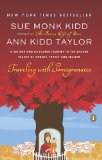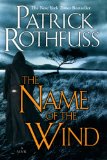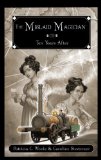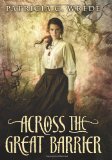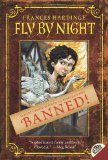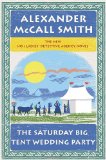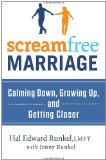 ScreamFree Marriage
ScreamFree Marriage
Calming Down, Growing Up, and Getting Closer
by Hal Edward Runkel, LMFT
with Jenny Runkel
Crown Archetype, New York, 2011. 276 pages.
Starred Review
Why, you may ask, would someone who’s recently completed a painful divorce want to read a book on improving your marriage?
Well, I asked myself that a few times as I was in the middle of this book, and I did read it slowly, only a chapter at a time, because in many ways the good advice made me wistful.
If I ever remarry, I will purchase a copy of this book. As it is, for my own growth, I think it’s good to look back and figure out the ways my own immature responses hurt our marriage. It can only help me grow.
And that’s what this book is about: Behaving like a grown-up, an emotionally mature person in your marriage.
I read the book because I was extremely impressed with the author’s earlier book, ScreamFree Parenting. So even though I’m not married any more, I very much wanted to read what he had to say about marriage. His mantra is in the subtitle: “Calm Down, Grow Up, Get Closer.” As the author talks about different scenarios in marriage, you can see what good advice that is.
When Hal Runkel talks about calming down and keeping your cool, he’s not referring to hiding your emotions from your partner. Indeed, that’s one of the ways he describes that some people scream.
“In ScreamFree Marriage, ‘keeping your cool’ does not refer to simple anger-management techniques or artificial rules of engagement (fighting fair). No, becoming ScreamFree in your marriage refers to something far more optimistic. Here, keeping your cool means discovering and holding on to your truest self — and having the courage to openly pursue your truest desires — even in the midst of your greatest conflicts. It means willingly and calmly facing the natural fires of marital commitment, and actually growing up — and getting closer — through them.
“Entering into such conflicts with integrity is not an easy task; it’s not supposed to be. Developing a marriage built on passion, commitment, and deep connection means committing yourself to a new way of relating. It means keeping your cool as you face conflicts with your spouse that may have previously set you off in some form of ‘screaming.’ Being Scream Free means holding on to your deepest desires for connection and boldy making yourself vulnerable . . . without knowing how your spouse will respond. It means viewing old marital patterns through new lenses, no longer seeing those patterns as indications of irreconcilable differences, but rather as opportunities to grow your personal integrity and transform your relationship. It’s not a journey for timid spirits, but the rewards are certainly worth the struggle.”
Now, I used to absolutely hate it when my husband said I was “screaming” at him when I knew full well that I was not. (I can give an example of screaming!) However, the author has this to say:
“Now, I hear what some of you are thinking. ‘But I don’t ever scream at my spouse.’ And that’s what I used to think as well. But what I mean by ‘screaming’ is not just yelling with a raised voice. Screaming is the term I use to describe the greatest enemy we all face in our marriage: emotional reactivity. That’s a big, clinical expression to describe the process of letting our anxious emotions override our clear thinking. Getting emotionally reactive means allowing our worst fears or worries to drive our choices, instead of our highest principles. And whenever we allow ourselves to be driven by our anxiety, we usually create the very outcome we were hoping to avoid in the first place.”
Again, the author is not talking about stuffing feelings. He’s talking about getting to a calm place where you can share your true feelings with your partner and be open to hearing your partner’s true feelings. And the “Grow Up” part of his mantra is about coming from a place of maturity, not from emotional reactivity. I liked this passage, because it rings true:
“The greatest thing you can do for your marriage is to learn to focus more on yourself, yes, I believe you actually need to become more self-centered. Now, before you call this crazy talk, hear me out. Every great marriage is a self-centered marriage because every great marriage requires two centered selves. Every great marriage is a bond between two whole, centered people. These two strong individuals actively work on improving themselves for the other’s benefit, without necessarily depending on the other to do the same. These two are afraid of neither separation nor togetherness, and work to seek a balance of both. These two pay more attention to their own behavior, which they can control, than their spouse’s which, thankfully, they cannot.”
The author goes on to show you the beauty of his formula: “Calm Down, Grow Up, Get Closer.” I’ll just summarize the two sub-steps of each step. For “Calm Down,” you Pause Yourself (self-explanatory) and Go to the Balcony, mentally take yourself out of and above the moment, gain some perspective.
In the “Grow Up” step, you first Spot Your Pattern. Figure out what part of the pattern you are contributing to. What actions that you are taking are contributing? Once you’ve figured that out, “Step on the Scales.” Analyze your own behavior and ask yourself why you’re doing what you’re doing. (And Hal Runkel has a nice example in his own marriage to illustrate these steps.) Ask yourself why this particular pattern means so much to you. But also ask yourself, “What, in this situation, do I want most to see happen?”
The third step of ScreamFree Marriage is “Get Closer.” This begins with part one: “Show Your Cards.”
“And the first step in getting closer is, naturally, quite revealing. It is quite risky. It is the move we so often avoid in all our relationships, especially our marriages, because it necessitates so much openness and vulnerability. And yet, do it we must if we are going to have a chance at getting what we want most. What are we talking about? We’re talking about doing or saying that one thing you’ve been so reluctant to do or say for fear of rejection, abuse, looking stupid, feeling weak, or simply not getting the response you’d hoped for. We’re talking about laying down your hand and showing your cards.
“Now, for those of you totally unfamiliar with poker, this metaphor may not mean anything. My guess is that most of us, however, can understand the meaning here quite clearly. Showing your cards is about mustering the courage to recognize that it’s your turn to reveal what you’ve got. In the game of poker, this is always the tensest moment, because it’s the boldest effort to win — and thus carries with it the opportunity to lose. Showing your cards in marriage is daring to risk revealing who you are, what you’re thinking and feeling, and what you want most. This is the clearest, starkest move of Authentic Self-Representation.”
Then, after you Show Your Cards, the final part is to “Champion Your Spouse.” This does not mean telling your spouse he’d better do what you want.
“While getting closer is all about focusing on yourself and representing that self to your spouse, it is also about welcoming, and encouraging your spouse to do the same.
“Now I know that sounds a little contrary to what I was saying earlier about not doing this in order to provoke a particular response from your spouse. That’s not what this is. Championing your spouse is working hard to communicate — not so much with words or actions but by your very calm presence — that you welcome, and even invite, any response at all. Even if that response is reactive screaming (non-abusive, of course). Even if that response is silence. Even if that response is confusion, frustration, or choosing to voice a concern right back at you. By championing your spouse, you are again communicating what you want most — that voluntary connection that makes both partners feel prized, valued, and stronger as individuals. In reality, you cannot have that connection without your spouse choosing to reveal himself, in some way, back to you. . . .
“What you do want your spouse to do is show you what he’s got. You don’t want him to ‘play it close to the vest,’ hiding himself and his true feelings and desires from you. You want him to reveal and represent himself because just as you want to make yourself known, you want to know him. That’s why you got married! To share yourself with someone who wants to share himself with you. It’s ironic that we can’t wait to get to know each other better, until we get a few years under our belt. Then our fears, and memories of disappointment, make us a little gun-shy. We either shy away from conflict or reactively reveal ourselves in aggressive, attacking ways that force our partner to shy away from us.”
So you get the idea. The author talks about how to use these steps in many common areas of marital conflict, and then talks a bit more about developing true intimacy through self-revelation. I wish I could have tried it out in my own marriage!
Before I close my review, I want to cover a section that impressed me toward the end of the book. The author does, very realistically, encourage you to focus on yourself and your own growth — but I liked this section about personal growth and encouraging your spouse to grow:
“I certainly understand the dynamic of one spouse trying to change the other, and the other trying to resist those efforts. In many ways, that dynamic is the exact pattern I’m calling people away from. I’m asking folks to stop focusing on their spouse and return their gaze to themselves. But that applies to both the spouse doing the attempted manipulation as well as the spouse trying to resist being changed. Stop focusing so much on what your spouse is trying to do to you, and start focusing on something much more fruitful: changing yourself.
“What’s fascinating about the Popeye defense” [“I yam what I yam, and that’s all that I yam.” Your spouse should just accept you for who you are.] “is that when it’s used, it comes across as some healthy self-acceptance that everyone needs to adopt. ‘I can accept me for me — why can’t she?’ On the surface, in our pop-psychology-riddled society, this may have the appearance of wisdom. But dig deeper, and this attitude is not only unwise, it’s actually harmful to both you and your marriage. . . .
“Just think about that for a moment. You want your spouse to just accept you for who you are? Really? Even if you’re lazy? Even if you totally let your body go and become weak, fat, and unhealthy? Even if you drink too much or watch too much TV or read too many romance novels? Even if you neglect your kids, spend without discretion, complain about your spouse to your friends instead of addressing the issue directly? Your spouse is just supposed to sit back and accept all these behaviors as the honest, unchanging you he/she is stuck with forever?
“If your answer is no, then Calm Down, Grow Up, and Get Closer by actually seeking out your spouse’s feedback. Go to him and ask what you could be doing better. Ask her directly how she thinks you’re doing, and what she wishes you would do more or and less of. Why? Because if you’re going to be the best spouse possible, then you need continual feedback on how you’re doing and how you can improve.
“Now, if your answer is yes, that you believe your spouse should just accept you fully, warts and all, then I want you to listen carefully. Your problem is not your spouse’s efforts to change you. Your problem is that you don’t respect yourself — at all. You don’t even like yourself. Anyone who respects herself is going to actively work to improve herself, rarely sitting back and remaining satisfied. Anyone who even likes himself is going to nurture his God-given desire to grow in wisdom, and build on his skills and abilities. Instead, you’re just wallowing in atrophy, using your emotional muscles only to defend yourself against your spouse’s efforts to change you. And you’re wondering why even the good things in life just don’t seem to be as pleasurable as they once were. That’s because you’ve ‘accepted’ yourself and demanded that your spouse do the same.
“But I know you. I know that you don’t want your spouse to just accept you. You want her to respect you. You want her to respect that you are not a child, incapable of doing anything for himself and in need of a mommy to tell him how to behave. You want him to see you as an adult, one who knows herself and knows what she needs to do. Well, there’s one way to gain that respect.
“Let love rule. Call yourself to your own standard. The standard you’ve already set for yourself by saying ‘I love you’ and ‘I do.’ You wish for and work for your spouse to have the best possible life, including the best possible spouse, and you believe you’re the one for the job. That’s what it means to love your spouse, and yourself.”
See what I mean? There’s good stuff here! May it help many, many couples Calm Down, Grow Up, and Get Closer.
I’m going to close with a quotation Hal Runkel included that made me laugh:
“My friends tell me I have an intimacy problem. But they don’t really know me.” — Garry Shandling
After all, if your spouse doesn’t understand you, could there perhaps be something you can do about that?
Buy from Amazon.com
Find this review on Sonderbooks at: www.sonderbooks.com/Nonfiction/screamfree_marriage.html
Disclosure: I am an Amazon Affiliate, and will earn a small percentage if you order a book on Amazon after clicking through from my site.
Source: This review is based on a library book from the Fairfax County Public Library.
